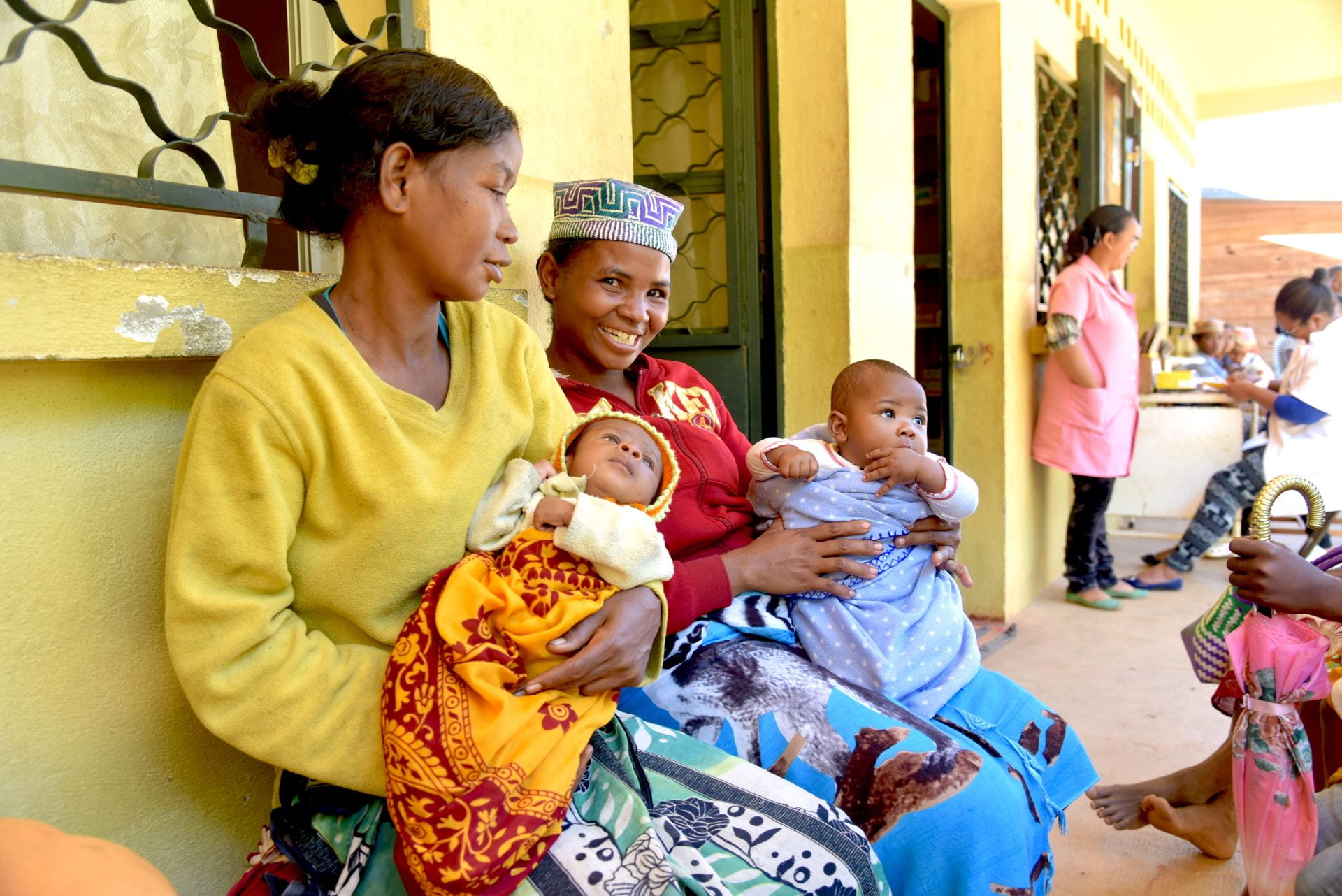Research Description
Every 1 in 650 pregnancies globally, and as high as 1 in every 200 pregnancies in Africa, results in the death of the mother. These deaths are often preventable if the woman has access to affordable and high quality prenatal, delivery, and postpartum care. Our Global Health Research Core Team works closely with implementing partners in Rwanda, Tanzania, Madagascar, Guatemala, and Peru to identify the most pressing needs of mothers and evaluate innovative solutions with the goal of improving the woman’s health. To date, some of our studies have addressed safe recovery after C-sections in Rwanda, the role of water and sanitation on post-C-section infection risk, the impact of a health system strengthening intervention on neonatal outcomes, and interventions to improve maternal and child care in rural Madagascar and Guatemala.
Research Projects
mHealth-community health worker tool for comprehensive post-cesarean follow-up in rural Rwanda
Description: This project built a mHealth tool to support comprehensive home-based care for community health workers to lead for women after cesarean delivery. In the first phase, we developed the tool and then tested the usability and acceptability among community health workers. In the second phase, we piloted the tool and assessed its feasibility, acceptability and validity. We are thrilled to announce that this project won the NIH Technology Accelerator Challenge (NTAC) for Maternal Health.
Core Member(s): Bethany Hedt-Gauthier (PI)
Funder: National Institutes of Health (FIC/ NICHD)
Funding Number: R21 HD103052
Using mHealth technology to identify and refer surgical site infections in Rwanda
Description: Surgical site infections represent a major source of morbidity and mortality worldwide and are disproportionately felt in low- and middle-income countries. Geographic and financial barriers can lead to delayed return to care with post-operative complications in rural Rwanda. This research developed an mHealth protocol to identify surgical site infections 10 days post-operation and evaluated the impact of a program of mHealth-supported community health workers on timely and appropriate return to care of patients with surgical site infections in Rwanda, improving patient outcomes and reducing healthcare costs.
Core Member(s): Bethany Hedt-Gauthier (Co-PI), Teena Cherian (former)
Funder: National Institutes of Health (FIC/ NIBIB)
Funding Number: R21 EB022369
Telemedicine to improve the diagnosis of surgical site infections post-cesarean delivery in rural Rwanda
Description: In sub-Saharan Africa, rates of surgical site infections (SSIs) for women who receive cesarean sections are high, but there is a lack of formal SSI follow-up, leading to increased maternal morbidity and mortality. The mHealth-community health worker intervention used telemedicine: a community health worker conducted a clinical screening assessment with patients, took photos of their cesarean wounds, and transmitted this data to a clinician who provided a real-time SSI diagnosis. The study described the feasibility, acceptability, and diagnostic efficacy of this telemedicine intervention in rural Rwanda.
Core Member(s): Bethany Hedt-Gauthier (PI), Jackline Odhiambo (former)
Funder: National Institutes of Health (FIC)
Funding Number: R21 TW011229
Protocols for safe postpartum care at home for women delivering by cesarean section in rural Africa
Description: This project aims to develop consensus guidelines on the instructions to be provided to women delivering via c-section at the time of discharge; develop and evaluate communication strategies for these instructions.
Core Member(s): Bethany Hedt-Gauthier (PI)
Funder: Harvard Medical School
Funding Number: N/A
Mobile health intervention to improve perinatal continuum of care in Guatemala
Description: This project designed an mHealth app for use by traditional birth attendants (TBA) doing prenatal home visits in an Indigenous Maya community in Guatemala. In a pragmatic randomized controlled feasibility trial, TBAs used the app to assess risks to pregnant women and their fetuses during pregnancy and provide referrals as needed.
Core Member(s): Ann Miller (PI: Clifford, G.)
Funder: N/A
Funding Number: N/A
AI-driven low-cost ultrasound tool for automated identification of placental insufficiency, pre-elampsia and intra-uterine growth retardation
Description: The goal of this project is to develop AI-based techniques for detecting maternal-fetal complications using 1-D Doppler input.
Core Member(s): Ann Miller (PI: Clifford, G.)
Funder: N/A
Funding Number: N/A
SAMI: strengthening maternal and child health in Carabayllo, Peru
Description: The SAMI project, piloted in 2016, focuses on maternal nutrition, physical and mental health during and after pregnancy, and maternal and child health through the first year after delivery.
Core Member(s): Ann Miller
Funder: N/A
Funding Number: N/A
The MiWAWA project
Description: This Peru based project combines the pre- and post-natal maternal and child physical and mental health interventions of the SAMI project with the CASITA nurturing parenting intervention targeted at early child development for caregivers and children up to 24 months. This life-course intervention is designed to ensure maternal support, health and safety, and ensure that children, even those at risk for developmental delays and difficulties, are able to attain their full developmental potential.
Core Member(s): Ann Miller
Funder: N/A
Funding Number: N/A
Ifanadiana health outcomes and prosperity (IHOPE) cohort study
Description: In 2014, the Madagascar Ministry of Health and PIVOT collaborated to initiate a district-wide health system strengthening project targeted at improving access and quality of care for residents of the Ifanadiana District. Through the Ifanadiana Health Outcomes and Prosperity (IHOPE) cohort study, we have documented improvements in access for pre- and postnatal care, and increases in facility-based deliveries.
Core Member(s): Ann Miller (PI)
Funder: PIVOT research funding
Funding Number: N/A
Top image courtesy of Pivot.
